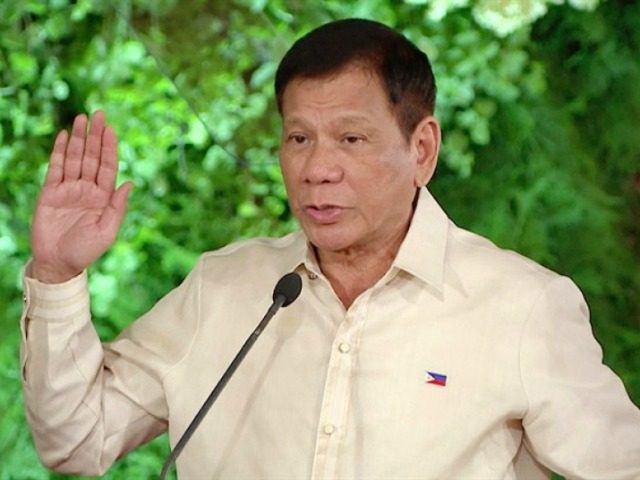Rodrigo Duterte, the populist anti-drug mayor of southern Davao City, has been inaugurated as President of the Philippines. In his inauguration speech, a conciliatory Duterte vowed to fight petty crime, drug trafficking, and government corruption.
“The ride will be rough but come and join me just the same,” he urged his audience, noting that “the fight will be relentless and it will be sustained” against street violence and poverty.
Quoting two American presidents in his speech – Franklin D. Roosevelt and Abraham Lincoln – Duterte vowed to confront the biggest problem facing the Philippines: “erosion of faith and trust in government.”
“Resulting therefrom, I see the erosion of the people’s trust in our country’s leaders; the erosion of faith in our judicial system; the erosion of confidence in the capacity of our public servants to make the people’s lives better, safer and healthier,” he noted, arguing he would address this through stern law-and-order responses to government corruption and crime.
He also assured those who did not vote for him through a beloved aphorism: “I have no friends to serve. I have no enemies to harm.”
The Philippine Star, in multiple articles, commended Duterte for giving a speech that “veered away from profanities.” Duterte developed a reputation during his presidential campaign for speaking crudely about criminals, the media, and anyone he considered to be hurting the Philippine state. To criminal “sons of bitches,” he repeatedly vowed, “I will kill you.”
The Star notes that Duterte’s rise to head of state is the mark of a new era in Philippine politics. Columnist Dindo Manhit notes the significance of Duterte, a mayor from the southern, poverty-stricken part of the nation, defeating political insiders in a nation where the surnames Marcos and Aquino can often carry someone through a full political career.
“Duterte’s rise can be understood as part and parcel of a broader collapse of barriers-to-power, which is transforming politics both in the Philippines and internationally,” Manhit writes. “All over the world, ‘micropowers,’ whether individuals, firms, or states, have found ways to undermine established players that previously served as the gatekeepers of power.”
Manhit posits that, while Duterte’s most vocal enemies are violent drug traffickers, he will seek during his presidency to “wage his own revolution against what he sees as a dysfunctional political and economic system that has created and perpetuated obstructions the Philippines’ path to industrialization on the other.”
Already the number of drug criminals found dead has risen significantly since Duterte’s electoral win. ABC News notes that there have been nearly 5,000 drug-related arrests after his election and “dozens” of suspects found dead. Police insist, however, that the increase in arrests has nothing to do with Duterte, but is part of “an intensified anti-drug campaign” that has been ongoing since before the presidential election.
The number of anti-drug raids is nonetheless expected to increase now that Duterte has been elected. “I will use the military and the police to go out and arrest them, hunt for them and if they offer a violent resistance … I will simply say, ‘kill them all so we can finish this problem,’” candidate Duterte promised.
Following his election, Duterte promised to use leftover campaign funds to issue bounties to civilians capturing drug suspects “dead or alive.” He has repeatedly encouraged civilians to arrest and kill drug traffickers.
Strict curfews and strong policing have turned Davao City into one of the safest destinations on southern Mindanao island under Duterte’s 22-year governance; he remains highly popular in his hometown and has said he will govern from Davao as president.

COMMENTS
Please let us know if you're having issues with commenting.